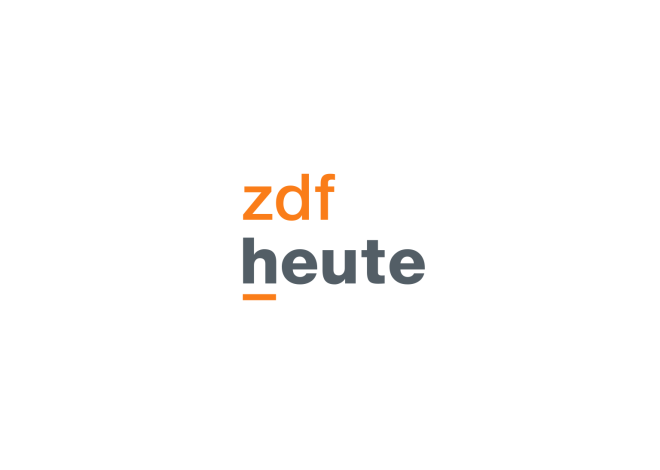
Combat depression via app with online therapy
Online therapy programs have been available on prescription in Germany since 2020. Free of charge for patients with statutory health insurance. The “app on prescription” should be available in Austria this year.
Sarah is not feeling well. The 27-year-old’s mental state has worsened with the corona pandemic. Her part-time job in the catering industry is gone. Her studies at university are at home on her laptop. Meeting friends and going out: not at all or only to a limited extent. “I wasn’t feeling so well mentally before, but this time has just made it worse,” the Viennese woman tells WZ. Sarah says that she has repeated depressive phases. But she is not currently in psychotherapy. “It was clear to me that I had to do something. But now going to the doctor and then looking for therapists and waiting was just too much for me,” she says. “Maybe I think I’m not bad enough for therapy and that may be wrong, but it’s also a question of cost,” explains the student and shows me her mental health app on her smartphone. The program accompanies her in her everyday life. She is repeatedly asked how she is doing and why she is feeling that way. She is given opportunities to reflect and meditate. The app costs Sarah around 50 euros a year. By comparison, a psychotherapy session in Vienna costs between 60 and 160 euros.
Online therapy on health insurance soon in Austria
Many people had the same experience as Sarah. The corona pandemic was an exceptional situation. This also applies to psychotherapy in Austria. Online therapy services are not legally covered in this country. Even “meeting” with psychotherapists via video telephony was only permitted as an exception during the pandemic. This has since been withdrawn. But only “serious cases”, such as people who cannot go out because of severe anxiety or depression or who live in very remote areas, can apply for this. This is set to change soon.
In Germany, there are numerous certified online therapy programs available on prescription. The so-called digital health applications (DiGA) are prescribed by doctors and are therefore free of charge for patients with statutory health insurance. These digital support programs range from psychological problem areas such as burnout, anxiety and depression to diabetes, irritable bowel syndrome or vaginismus. The Austrian Health Insurance Fund (ÖGK) wants to integrate DiGA into the reimbursement system this year. The corresponding law was passed in the National Council in April 2024. Pilot projects are already underway. But: What can we expect from online therapy?
Not a replacement, but additional help
“Anyone who wants a therapy place should get one,” says Juliane von Hagen in an interview with WZ. The psychotherapist for children and adolescents works for the online therapy platform “HelloBetter”. The service offered by “HelloBetter” is intended for the treatment and prevention of psychological stress. “We are additional help, not a substitute for therapy. For example, in addition to regular therapy sessions, for aftercare or in advance before clients go to therapists.” In Germany, these are two different services. So anyone who is waiting for their therapy place can use a DiGA on prescription for three months in the meantime. “Therapists can build very well on such applications,” says von Hagen. By keeping a diary or logging the various exercises, you can understand what works and where work still needs to be done. “Therapy can be improved in this way,” says the digital mental health expert.
Most of the therapy programs are based on cognitive behavioral therapy or further developments of it, such as acceptance and commitment therapy. There are offers such as diaries and exercises, protocols and reminders. But it cannot be done without professionally trained people. At “HelloBetter” psychologists therefore accompany the programs. They give regular feedback and intervene when participants are feeling worse and need further help. With many apps, many offers can still be used after the course has ended, but the support from the therapists is no longer available, says von Hagen.
Users are older than expected
The “app on prescription” has been available in Germany for almost four years. “We have learned an incredible amount,” says von Hagen. “At the beginning, everyone thought it was something for young people, but the opposite is the case. On average, users are around 45 years old, across all indications. And they are more often women, as they probably care more about their health,” says the psychotherapist. However, most of the offers are approved for adults aged 18 and over, because most studies are carried out with adults. “That is still lagging behind a bit, but little by little the first approvals are also coming for young people,” says von Hagen.
Would the offer be something for Sarah? “I would definitely try it out,” says the student. The mental health apps on the market are currently either expensive or not that good, says Sarah. A certified program that is paid for by the health insurance company would certainly be used by many more people than psychotherapy in a practice, Sarah believes. Juliane von Hagen also assumes that half of all those affected do not use traditional care services, for example because they want to solve their problems themselves or do not have access to psychotherapy. Online therapy programs are aimed at these people.
Meanwhile, Sarah continues with her mental health app. “I want to change my thought patterns and behavior, and ideally I won’t even need the app anymore,” she says.
Information and sources
Interview partners
-
Juliane von Hagen: Digital mental health expert as well as psychologist and psychotherapist for children and adolescents at the German online therapy platform “HelloBetter”.
-
Sarah from Vienna: The 27-year-old student does not want to give her last name, but is known to the editorial team.
facts and figures
-
A quarter of the population in Austria suffers from depressive symptoms, 23 percent from anxiety symptoms and 18 percent from sleep disorders. Young adults in particular are affected, and since the pandemic, the demand for therapy options has steadily increased. (DUK 2021 study)
-
The psychotherapeutic outpatient clinic in Vienna
-
Psychosocial services in Austria
-
Help with psychiatric crises
-
Since December 2019, the law for better care through digitalization and innovation (Digital Care Act – DVG) has been in force in Germany, which makes it possible to prescribe apps or use video consultations.
-
Health insurance companies have been paying for “apps on prescription” since autumn 2020. The Austrian Health Insurance Fund (ÖGK) also wants to integrate digital health applications into the reimbursement system this year. Pilot projects are already underway for this. According to the principle of “digital before outpatient before inpatient”, digital health applications are intended to support people with chronic physical and mental illnesses in their everyday lives.
Sources
The topic in the WZ
The topic in other media

Ethel Purdy – Medical Blogger & Pharmacist
Bridging the world of wellness and science, Ethel Purdy is a professional voice in healthcare with a passion for sharing knowledge. At 36, she stands at the confluence of medical expertise and the written word, holding a pharmacy degree acquired under the rigorous education systems of Germany and Estonia.
Her pursuit of medicine was fueled by a desire to understand the intricacies of human health and to contribute to the community’s understanding of it. Transitioning seamlessly into the realm of blogging, Ethel has found a platform to demystify complex medical concepts for the everyday reader.
Ethel’s commitment to the world of medicine extends beyond her professional life into a personal commitment to health and wellness. Her hobbies reflect this dedication, often involving research on the latest medical advances, participating in wellness communities, and exploring the vast and varied dimensions of health.
Join Ethel as she distills her pharmaceutical knowledge into accessible wisdom, fostering an environment where science meets lifestyle and everyone is invited to learn. Whether you’re looking for insights into the latest health trends or trustworthy medical advice, Ethel’s blog is your gateway to the nexus of healthcare and daily living.



